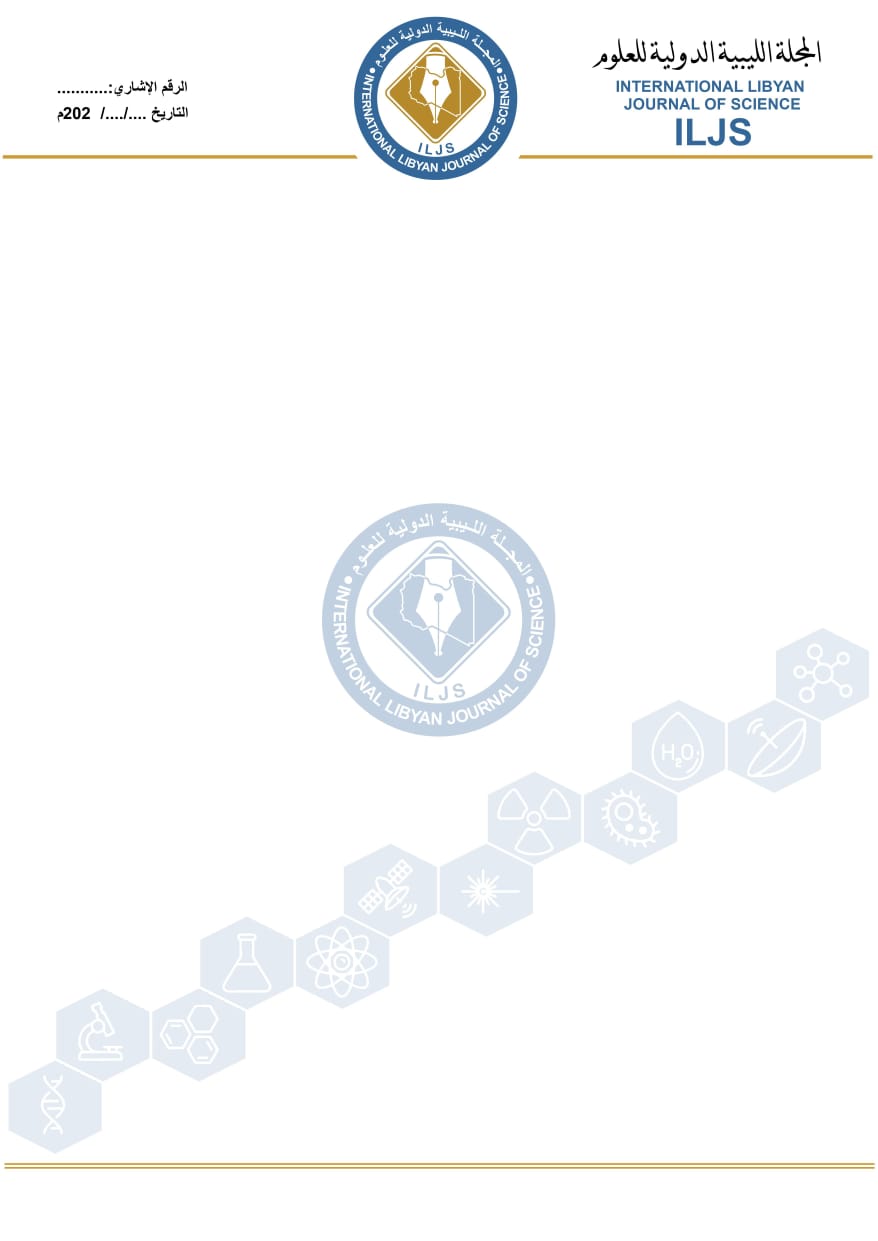
Publication ethics Statement
The International Libyan Journal of Science (ILJS) is committed to upholding the highest standards of publication ethics and to maintaining the integrity of the academic record. We adhere to the principles of transparency and best practice in scholarly publishing. Our ethical guidelines are based on the recommendations of the Committee on Publication Ethics (COPE).
- Responsibilities of Authors
- Originality and Plagiarism: Authors must ensure that their work is original and free from plagiarism. Proper citations and acknowledgments must be provided for all sources used.
- Authorship: Only individuals who have made significant contributions to the research should be listed as authors. The corresponding author should ensure that all co-authors have approved the final version of the paper and have agreed to its submission for publication.
- Disclosure and Conflicts of Interest: Authors must disclose any financial or personal relationships that could inappropriately influence their work. Any potential conflict of interest should be stated clearly in the manuscript.
- Data Access and Retention: Authors should be prepared to provide raw data related to their manuscript for editorial review and must retain such data for a reasonable time after publication.
- Responsibilities of Reviewers
- Confidentiality: Reviewers must treat manuscripts as confidential documents and must not disclose any information about the manuscripts to anyone other than the editorial team.
- Objectivity: Reviews should be conducted objectively, with clear and constructive feedback. Personal criticism of the author is inappropriate.
- Acknowledgment of Sources: Reviewers should identify relevant published work that has not been cited by the authors. They should also alert the editors to any substantial similarity or overlap between the manuscript under consideration and any other published paper they are aware of.
- Conflicts of Interest: Reviewers should not review manuscripts in which they have conflicts of interest resulting from competitive, collaborative, or other relationships with any of the authors, companies, or institutions connected to the papers.
- Responsibilities of Editors
- Publication Decisions: The editors are responsible for deciding which of the submitted manuscripts should be published. The decision should be based on the paper's importance, originality, clarity, and relevance to the journal's scope.
- Fair Play: The editors should evaluate manuscripts for their intellectual content without regard to the authors' race, gender, sexual orientation, religious belief, ethnic origin, citizenship, or political philosophy.
- Confidentiality: The editors and editorial staff must ensure that information regarding manuscripts submitted by authors is kept confidential.
- Disclosure and Conflicts of Interest: Editors should not use unpublished information in their own research without the express written consent of the author. They should recuse themselves from handling manuscripts in which they have conflicts of interest.
- Ethical Oversight
The ILJS is committed to ethical oversight of all aspects of publishing. We take allegations of misconduct seriously and will investigate thoroughly. If ethical breaches are identified, we will take appropriate actions, which may include retraction or correction of the published work.
- Complaints and Appeals
Authors, reviewers, or readers who have ethical concerns regarding any aspect of our journal are encouraged to contact the editorial office. The ILJS will respond to complaints and appeals in accordance with COPE guidelines.
Conclusion
The International Libyan Journal of Science is dedicated to promoting ethical conduct in the dissemination of scientific knowledge. By adhering to these guidelines, we aim to maintain the trust of our readers, authors, and the global scientific community.
